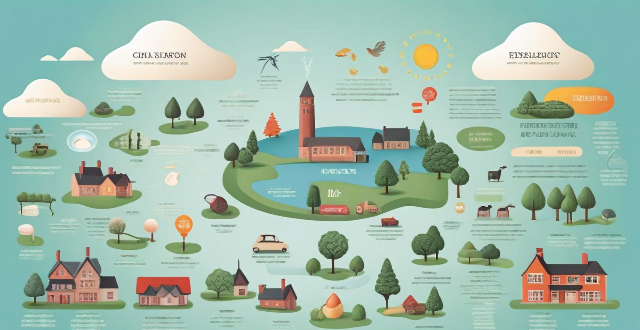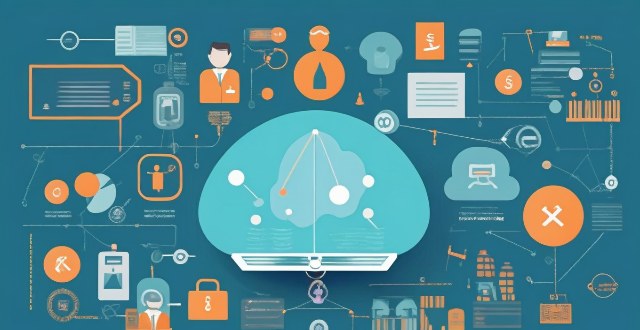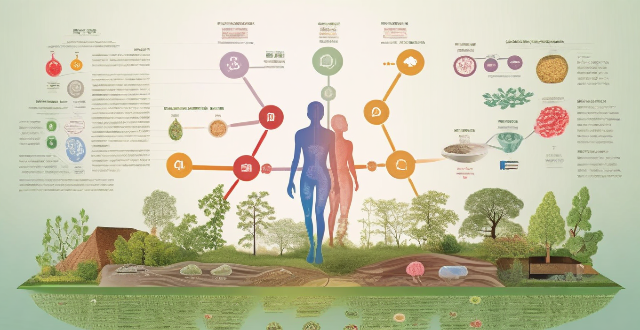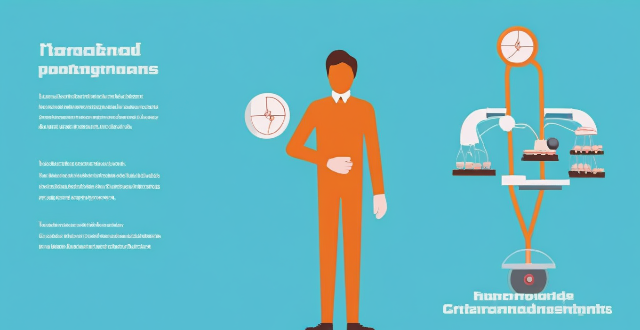Impact Effects

What role does access to healthcare play in mitigating the health effects of climate change ?
The text discusses the role of healthcare accessibility in mitigating the health effects of climate change. It highlights the importance of preventive care, emergency response, and chronic disease management in reducing vulnerability to climate-related health risks. The text also explores direct and indirect effects of climate change on human health, such as heat-related illnesses, respiratory issues, vector-borne diseases, mental health impacts, nutritional impacts, and displacement and migration. Finally, it suggests adaptation strategies for healthcare systems, including building resilient infrastructure, integrating climate change considerations into public health systems, and training community health workers on climate change impacts.

How does climate change impact mental health ?
Climate change has a multifaceted impact on mental health, including direct effects such as trauma from extreme weather events and environmental degradation, and indirect effects like economic strain and social disruption. Mitigating this impact involves raising awareness, strengthening community resilience, investing in mental health services, advocating for policies that address both climate change and public health concerns, and encouraging sustainable practices.

What are the economic impacts of climate change ?
Climate change has significant economic impacts, including direct effects on agriculture, natural disasters, and energy sector, as well as indirect effects on labor market, insurance industry, and investment decisions. To mitigate these impacts, actions such as investing in renewable energy and implementing sustainable practices are necessary.

What are the long-term effects of plastic pollution on the environment ?
The article discusses the long-term effects of plastic pollution on the environment, including soil degradation, impact on aquatic ecosystems, harm to wildlife, human health risks, and economic impact. It emphasizes the need for collective efforts to reduce plastic consumption and properly dispose of waste to protect the planet.

What are the most common side effects of vaccines ?
The most common side effects of vaccines are pain and swelling at the injection site, fever and chills, fatigue and headaches, and nausea and diarrhea. These symptoms are usually mild and last for a few days to a week. To manage these side effects, you can take over-the-counter pain relievers, apply ice packs, drink plenty of fluids, get enough sleep, and eat a healthy diet. If you experience severe side effects such as an allergic reaction or persistent symptoms, it is important to seek medical attention immediately.

What are the potential long-term effects of sports injuries on adolescent development ?
Sports injuries can have a significant impact on the physical, mental, and social development of adolescents. Potential long-term effects include chronic pain, limited mobility, disfigurement, anxiety, depression, low self-esteem, PTSD, isolation, bullying, and relationship difficulties. Proper treatment and rehabilitation are crucial for minimizing these effects.

What are the effects of pregnancy and motherhood on women's mental health ?
The article discusses the impact of pregnancy and motherhood on women's mental health, highlighting both positive and negative effects. Positive effects include increased responsibility, improved social support, and enhanced emotional connection with the child. Negative effects may involve postpartum depression, anxiety disorders, and trauma-related disorders. Coping strategies such as seeking professional help, building a support network, and practicing self-care are recommended to manage any mental health challenges that arise during this period.

What are the psychological effects of winning or losing in competitive sports ?
Winning or losing in competitive sports can have significant psychological effects on athletes, ranging from increased confidence and motivation to feelings of disappointment and frustration. Winning can boost an athlete's self-confidence, motivate them to continue striving for excellence, and improve their mental health. Losing can lead to feelings of disappointment, decreased confidence, and increased stress and anxiety. To manage these effects, athletes should develop effective coping strategies such as mindfulness, positive self-talk, goal setting, seeking support, and relaxation techniques. By doing so, they can maintain a healthy mindset both on and off the field.

What are the long-term effects of youth sports on mental health ?
Youth sports can have both positive and negative effects on mental health, including increased self-esteem, improved social skills, and reduced stress levels. However, pressure to perform, overtraining, injuries, bullying, and dependence on sports for identity can also have negative impacts. It is important for adults involved in youth sports to be aware of these potential effects and take steps to foster the positive ones while mitigating any negative impacts.

How do TV show ratings and viewership numbers change after a major plot twist is leaked ?
Leaked plot twists in TV shows can have both immediate and long-term effects on ratings and viewership. Initially, they may create buzz and increase interest, but can also lead to disappointment and a drop in live viewership. Mid-term effects include changes in viewer habits and impacts on critical reception. Long-term, leaks can damage a show's reputation and affect anticipation for future episodes. The overall impact depends on various factors, such as the nature of the leak and the show's fan base.

What are the side effects of the COVID-19 vaccine ?
The COVID-19 vaccine has been a topic of great interest and concern in recent months. While many people have received the vaccine with minimal side effects, others have reported experiencing more severe reactions. The most common side effects reported after receiving the COVID-19 vaccine include pain, redness, or swelling at the injection site, fatigue, fever, headache, muscle pain, nausea, rash, chills, dizziness, and joint pain. However, there have also been reports of serious side effects associated with the COVID-19 vaccine, including blood clots, angioedema, myocarditis, and Guillain-Barré Syndrome. It is important to note that these cases are extremely rare and far outweighed by the benefits of receiving the vaccine.

How does climate change affect poverty levels ?
The article discusses the various ways in which climate change affects poverty levels around the world. It highlights the direct effects of extreme weather events and health impacts, as well as the indirect effects on food security, livelihoods, and gender inequality. The article also suggests strategies for mitigating the impact of climate change on poverty, including investing in renewable energy sources, supporting smallholder farmers, enhancing resilience through improved infrastructure, promoting gender equality, and providing social protection programs.

How does wind energy affect the environment ?
Wind energy is a renewable source of power that has become increasingly popular as an alternative to fossil fuels. However, like any form of energy production, it does have some environmental impacts. The positive effects of wind energy on the environment include a reduction in greenhouse gas emissions, conservation of natural resources such as water and no need for fuel. Wind farms can coexist with agricultural activities and modern turbine designs can help minimize impacts on local wildlife. However, there are also potential negative effects on the environment. These include visual and noise pollution, as well as potential impacts on wildlife such as bird and bat collisions and habitat disruption. The presence of large structures like wind turbines can also alter local wind patterns and potentially affect microclimates. Overall, while wind energy offers significant benefits in terms of reducing greenhouse gas emissions and conserving natural resources, it is not without its challenges regarding visual and noise pollution, as well as potential impacts on wildlife. Careful planning and technological advancements can help mitigate these negative effects, making wind energy an increasingly viable option for a sustainable future.

How does social media impact the development of teenagers ?
The article discusses the impact of social media on teenagers, highlighting both its positive and negative effects. The positive effects include connectivity, information and learning, and creativity and self-expression. However, the negative effects such as addiction, cyberbullying, and privacy risks are also significant concerns. The article emphasizes the need for responsible and safe use of social media by teenagers.

What are the effects of extreme weather events on agriculture ?
Extreme weather events such as droughts, floods, heatwaves, and storms have significant impacts on agriculture. These effects can be categorized into direct and indirect consequences, including reduced crop yields, soil degradation, crop destruction, soil erosion, heat stress, water loss, physical damage to crops and livestock, economic impacts, food security issues, environmental impacts, and social impacts such as rural poverty and migration. Addressing these challenges requires a comprehensive approach that takes into account both the immediate needs of affected farmers and the long-term resilience of agricultural systems.

What are the harmful effects of chemicals on human health ?
Chemicals can have harmful effects on human health, affecting various systems in the body. Short-term exposure to chemicals can cause irritation of the respiratory system, increased heart rate and blood pressure, headaches, dizziness, and confusion. Long-term exposure to chemicals can lead to chronic bronchitis, emphysema, lung cancer, coronary artery disease, heart failure, stroke, neurological disorders, memory loss, and mood disorders. It is essential to be aware of the potential harmful effects of chemicals and take necessary precautions to protect our health.

How do competitive sports impact mental health ?
Competitive sports have a significant impact on mental health, with both positive and negative effects. Positive effects include increased self-esteem and confidence, improved social skills and teamwork, stress reduction and relaxation, and goal setting and achievement. Negative effects include pressure to perform, fear of injury, burnout and overtraining, and unhealthy weight management practices. It is essential for athletes to manage the pressures associated with competition and prioritize their mental and physical health above all else. Seeking support from coaches, teammates, friends, and family members can also help athletes navigate the challenges of competitive sports and maintain good mental health.

How does staying hydrated impact personal health ?
This article discusses the importance of staying hydrated for personal health. Water is essential for many bodily functions, and not getting enough can lead to a range of negative effects on your physical and mental well-being. The article explores the benefits of staying hydrated, such as regulating body temperature, supporting the digestive system, and lubricating joints. It also discusses the negative effects of dehydration, including fatigue, dizziness, and kidney problems. Finally, it suggests how much water you should drink per day based on various factors.

What are the effects of stress and pressure on an athlete's performance, and how can sports psychology mitigate these ?
Stress and pressure can have both positive and negative effects on an athlete's performance. In small amounts, stress can increase focus and motivation, leading to improved performance. However, excessive stress and pressure can have detrimental effects on an athlete's physical and mental health, as well as their overall performance. Sports psychology is a field that focuses on using psychological techniques to improve athletic performance and enhance overall well-being. Sports psychology professionals work with athletes to develop strategies for managing stress and pressure, improving mental toughness, and enhancing overall performance.

Are there any potential side effects of switching to a gluten-free diet ?
Switching to a gluten-free diet can have several potential side effects, including nutrient deficiencies, digestive issues, weight gain, headaches and fatigue, and higher cost. It is important to be aware of these potential side effects and take steps to ensure adequate nutrition on a gluten-free diet. Consultation with a healthcare professional is recommended before making any significant changes to your diet.

Are there any particular sports or exercises that have been studied for their impact on immunity ?
This article discusses the impact of various sports and exercises on immunity, including aerobic exercise, resistance training, high-intensity interval training (HIIT), and yoga/meditation. It highlights the positive effects of these activities on immune function when performed regularly and appropriately, such as increased blood flow, enhanced immune cell production, improved cardiovascular health, and reduced inflammation. However, it also emphasizes the potential negative effects of excessive exercise or overtraining on immunity, urging individuals to find a balance between physical activity and rest.

How long does it typically take for an economic stimulus plan to have a noticeable impact on the economy ?
## Summary Economic stimulus plans are sets of measures taken by governments to boost the economy during slow growth or recession. The time it takes for these plans to have a noticeable impact on the economy depends on several factors, including the plan's size and scope, targeted sectors, implementation efficiency, and current economic conditions. Generally, short-term effects can be seen within weeks, mid-term effects within three to six months, and long-term effects after one to two years. However, these timelines are not fixed and can vary based on the specific circumstances of each plan.

Can taking sports nutrition supplements lead to health risks or side effects ?
Sports nutrition supplements can enhance performance and recovery but may pose health risks and side effects such as overdosing, contamination, interactions with medication, and allergic reactions. However, when used appropriately, they can also improve performance, increase muscle mass, aid in recovery, and replenish nutrients. It is crucial to research each supplement, follow recommended dosages, and consult with a healthcare professional to minimize risks and maximize benefits.

What are the long-term effects of climate change on children ?
Climate change has far-reaching effects on children's health, including physical, mental, and emotional impacts. Poor air quality, extreme weather events, and food insecurity can harm children's physical health. Trauma and stress from climate-related disasters, as well as fear and anxiety about the future, can affect their mental health. Loss of home and community, along with intergenerational trauma, can impact their emotional health. Addressing these challenges requires a comprehensive approach to ensure a healthier future for all children.

How does celebrity endorsement impact consumer behavior ?
Celebrity endorsement is a common marketing strategy where a well-known individual promotes a product or service. The impact of celebrity endorsement on consumer behavior is significant and can be analyzed from various perspectives, including influence on brand awareness, perception of quality and value, trust and credibility, emotional connection and loyalty, and potential negative impact. Marketers should carefully consider the selection of celebrities for endorsements and monitor the effectiveness of these strategies over time.

How does extreme weather impact mental health ?
This comprehensive analysis discusses the impact of extreme weather events on mental health, highlighting immediate emotional responses, trauma, stress, long-term effects like PTSD and depression, community impact, and intervention strategies. It emphasizes the need for early intervention, community support, accessible resources, and resilience building to address these challenges effectively.

How does exercise physiology contribute to understanding the aging process and its effects on physical performance ?
Aging is a complex biological process that affects all living organisms, involving a gradual decline in physical and mental functions over time. Exercise physiology, the study of how the body responds to exercise, plays a crucial role in understanding the aging process and its effects on physical performance. As we age, our muscle mass and strength tend to decrease, cardiovascular fitness reduces, and joint pain and stiffness become more common. Exercise physiology helps us understand how the body adapts to regular physical activity at different stages of life, preventing age-related declines and promoting healthy aging through targeted exercise programs.

How do climate change and environmental factors impact virus origin tracing ?
Climate change and environmental factors play a significant role in virus origin tracing by affecting host and vector distribution, human activities, and interactions with the environment. Understanding these impacts is crucial for effective surveillance and research efforts to prevent and control infectious diseases.

What policies are being implemented to mitigate the effects of climate change on national security ?
Climate change poses a significant threat to national security, affecting areas such as food and water scarcity, natural disasters, and displacement of people. Governments around the world are implementing various policies to mitigate these effects and ensure the safety and stability of their nations. Key policies include transitioning to clean energy sources, promoting sustainable agriculture practices, protecting coastal communities and infrastructure, collaborating globally to address climate change, and building resilience to natural disasters through disaster risk reduction and preparedness. By implementing these policies, governments aim to not only reduce the direct effects of climate change but also strengthen their overall capacity to handle related challenges, ensuring the continued security and stability of their nations.

How does network congestion impact latency ?
The impact of network congestion on latency can be significant and can have a negative effect on the overall performance of the network. This can include increased transmission time, higher drop rates, reduced bandwidth availability, and impacts on application performance. It is important for network administrators to monitor and manage network traffic to minimize the impact of congestion on latency and ensure that applications continue to function properly.